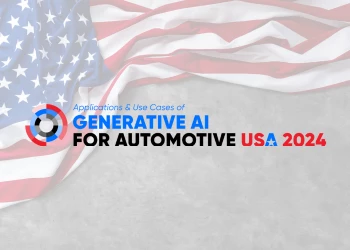Are These the Most Stringent Tire Laws in the World?
Add bookmarkIn the middle of September a determined government in a major country brought in a new set of laws applicable to the tire industry. The new legislation came into effect on 1 October 2014. It is, by some interpretations, the most stringent in the world. There was almost no mention of this significant news in the English-language media.
I am talking about the Access Conditions for the Tire Industry, introduced by the Chinese Ministry of Industry and Information Technology (MIIT).
Readers can see the official announcement from MIIT (Chinese language) here:
http://www.miit.gov.cn/n11293472/n11293832/n11293907/n11368223/16136318.html and a PDF of the new laws (in the Chinese language) here:
http://www.miit.gov.cn/n11293472/n11293832/n11293907/n11368223/n16136318.files/n16136180.pdf
The new package is striking for a couple of reasons. Most obviously, it is the first time – anywhere in the world -- that a government has specified the amount of energy and water that tire makers consume for each tonne of tire production. Second, despite this innovation, the law marks a significant softening of China's position in comparison with the draft legislation published in mid-May.
Although the new rules appear to have no teeth, observers should be in no doubt that the law signifies a clear intention by the Chinese government to clean up the industry. There are no teeth because the law is – for the time being – voluntary. No penalties for non-compliance; no requirement or timetable to meet the numbers; no obvious change in the industry.
Behind the scenes, however, this is another piece of the jigsaw which signifies a clear determination to upgrade the industry. All of these – so far – remain voluntary, but all can easily be changed to become mandatory.
China does not have the same difficulties with compliance and enforcement as the Western democracies. Where Western governments have to devote scarce resources to market surveillance, testing and due process, the Chinese authorities can simply switch off the power and water to enterprises which do not meet the current policy. That's not going to happen for a couple of years. But all observers should take note of the direction of China's tire makers.
Back in 2010 China introduced the 'Tire Industrial Policy.' In March this year we saw the 'Green Tire Specification' and now China's MIIT has published the 'Tire Industry Access.'
My guess is that next year will come a labelling scheme which will also be voluntary. Voluntary or not, the top 20 or 30 tire makers in China are bringing in international experts to help them develop silica mixing, design textile and steel cord reinforcement structures and formulate compounds based on Nd-BR, functionalised S-SBR and other advanced materials. It's not just technology. They are restructuring their marketing departments too. These top companies are identifying the specific market demands of customers in car and truck segments in different countries and regions.
China has over 300 tire makers. Behind those top 30 or so, there is a long tail of a few hundred tire makers in China who have little concept of marketing and branding, let alone the intricacies of the silanisation reaction.
The government's aim is to restructure the industry by removing a lot of the less advanced companies and leave a large, strong industry behind, capable of competing on the international scene.
In legislative terms, this voluntary phase gives companies the motivation to upgrade their processes and technologies. There's been no official announcement, but I'm confident that there will be government support for Chinese-owned companies who seek to meet the voluntary standards.
Once there are enough local companies who can achieve those standards, laws which today are voluntary will quickly become mandatory. And then we'll see the industry start the desperately-needed consolidation phase. Already we are seeing signs that the top companies are restructuring in preparation for a new phase of the industry.
Shandong Linglong and Triangle have already announced their intention to raise funds through IPOs. Hangzhou Zhongce is very likely to go the same way with a privatisation within a year. Cooper Chengshan is seeking to restructure its relationship with its parent, Cooper Tire. I could list the activities of Sailun, Sentaida and others, but the direction is clear. Top Chinese companies know change is happening and are restructuring to meet that change.
I'm not convinced that those of us in the Western world are quite as up to speed with the pace of change in China, so I'm finishing off a long report which looks at these changes and identifies some of the key strategies and partners in the region.
David Shaw is in the final stages of writing an in-depth report on the tire industry in China. This column is based on the forthcoming report.










